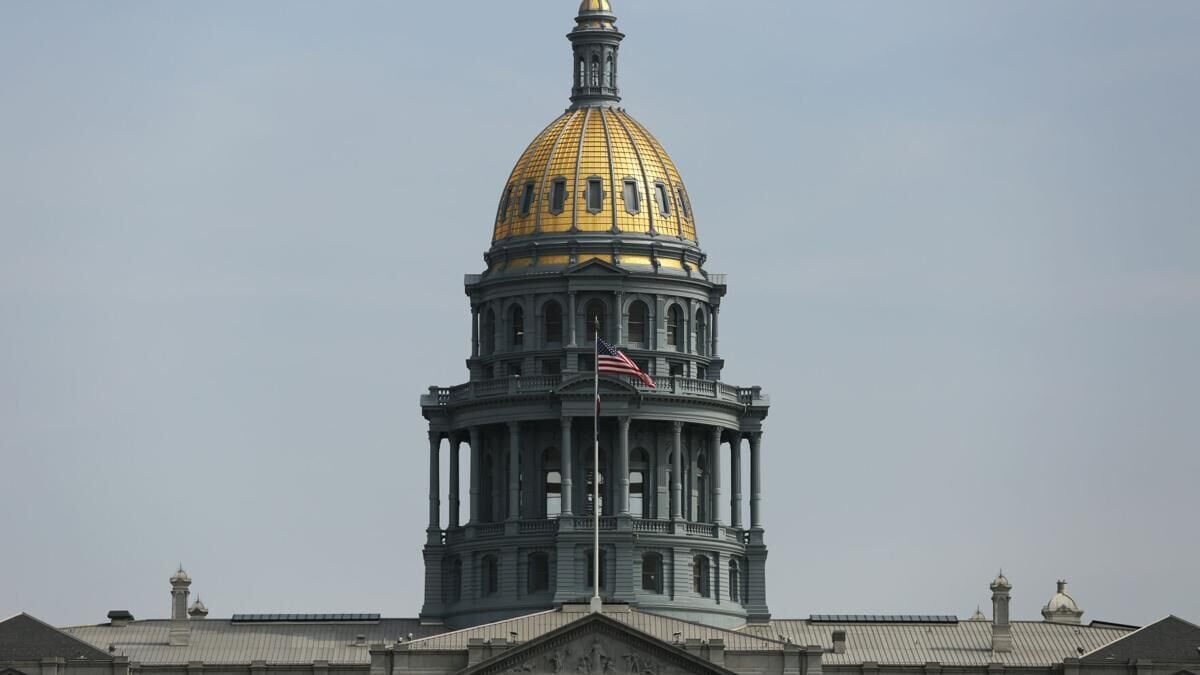LETTERS: Democrats’ unchecked power; putting our health at risk
Democrats’ unchecked power
When tragedy unfolds, our humanity elicits a shared sense of empathy and mourning within our core. We evaluate and seek to understand an event. We demand justice. True justice, however, doesn’t punish the whole because of the wrong performed by the few. For that, too, would be an injustice.
Yet with the introduction of another extensive firearms ban in the Colorado General Assembly, Democrat Party legislators have again demonstrated themselves to be haughty, unyielding, and deserving of ridicule.
Experience has shown that people often become critical of political authorities out of fear or contempt or because they have been unjustly treated. One provocative form of injustice involves the imbuement of real or imagined fear regarding the confiscation of property.
With Senate Bill 25-003, Democrats flaunt an unyielding desire to infringe upon the 2nd Amendment rights of every Coloradan by more or less denying people the further acquisition of various firearms common to self-defense. As such, it’s at least plausible to imagine that Democrats might unjustly come next for those same firearms owned by the people.
With each new legislative session, why do Democrat lawmakers continually direct scorn at their firearm owning constituents? I suggest that many lawmakers in Colorado’s Democrat Party harbor the vice called hubris. They also mistrust the people.
In the fourth century, Aristotle argued in politics that anyone who believes all virtue is found in their own party principles will push matters to extremes.
Democrats have long enjoyed majority and super-majority status in the General Assembly. Arguably, many Democrats have become hubristic addicts of unchecked power. Aristotle called such persons tyrants. I liken any such person to a bully. Bully and tyrant both mistrust people; therefore, they set out to infringe on the citizenry’s constitutional rights.
That infringement is attempted anew through extreme legislation such as SB25-003.
Christopher J. Slager
Denver
Putting our health at risk
Climate change is putting our health at risk, and we are feeling its effects now. Have you ever felt the fear and helplessness of not being able to breathe during an asthma attack? I did just this weekend — and found myself in the ER, thankful for the privilege to eventually exhale. Literally.
Pollution chokes our air, worsening respiratory conditions like asthma. Investing in clean energy and reducing fossil fuel dependency will lead to healthier air quality and stronger communities. Climate change is more than an environmental issue; it is a public health crisis that demands immediate and coordinated action.
There are three real ways Congress can act in 2025 to make meaningful progress:
1. Impose a carbon border tariff. With around 25% of global carbon pollution tied to trade, policies like this could have a huge global impact. (source: Trade and Climate Change, World Trade Organization.)
2. Pass bills and enact policies that support clean energy technology. Examples from 2024, such as the Energy Permitting Reform Act, already have significant bipartisan support.
3. Fund reforestation and wildfire mitigation. Bipartisan solutions in the Farm Bill and other legislation could advance reforestation and forest health initiatives.
Remember, the question is not: “Will I do harm or will I do good?” the question, when faced with a crisis as overwhelming as our climate and our future, is: “Will I do good, or will I do nothing?”
Grace Trautman
Denver
Workers’ bargaining rights
I appreciate the recent editorial advocating for economic prudence regarding the Worker Protection Act (SB25-005).
However, it’s concerning that it relies on a Common Sense Institute (CSI) report with significant credibility issues. CSI selectively presents data, particularly in claiming that the Act would increase Colorado’s cost of living more than wage gains.
This argument misinterprets correlation as causation, ignoring factors like housing markets and public investments that truly affect the cost of living. Stronger bargaining rights lead to higher wages and better job quality, which ultimately benefit local economies.
Critics like the Chamber of Commerce oppose the bill because it strengthens worker power. SB25-005 eliminates the unnecessary second election requirement that delays or obstructs union organizing. This requirement, often used to undermine workers’ rights, contributes to wage stagnation and inequality. As labor power declines, corporate profits soar while wages stay flat, weakening overall economic demand.
Research from the Colorado Fiscal Institute (CFI) shows that protecting workers’ bargaining rights leads to higher wages—up to $2,300 annually per worker.
Unions help reduce income inequality and stimulate local economies by increasing workers’ spending power. CFI also found no significant evidence that protecting workers’ rights harms business recruitment.
On the contrary, higher union density fosters economic prosperity, with union workers earning 10% more than their non-union peers.
The second election requirement is an outdated barrier that undermines workers’ ability to secure fair wages.
It’s time for Colorado legislators to pass SB25-005 and strengthen worker protections, ensuring shared economic growth and a fairer, more prosperous state economy.
Sophie Mariam
Denver





